No ‘fuss about each other’s religion’: Where lies Indonesia’s guard against extremism?
Protests at Israel’s participation in the Under-20 World Cup cost Indonesia its hosting rights. The programme Insight examines whether identity and Islam will also make for a volatile mix leading up to next year’s presidential election.
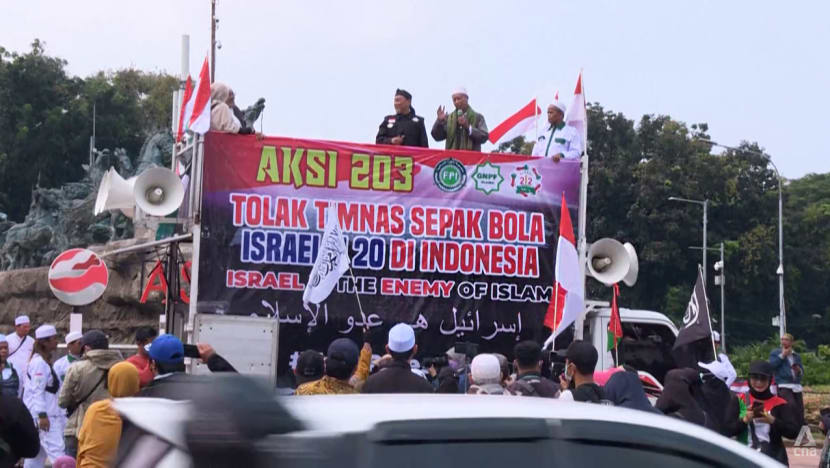
Protests against Israel’s participation in the Under-20 World Cup indicate a complex mix of politics, religion and identity in Southeast Asia’s largest country.
JAKARTA: Indonesian football fans should have been the ones watching tomorrow’s football stars in action in their country at the Under-20 World Cup, which is taking place now and ends next Sunday.
But it was not to be, after football’s world governing body, Fifa, removed Indonesia as host in March, following protests by Islamic groups and opposition from two governors to Israel’s participation.
Indonesia was appointed host in 2019, while Israel qualified last June for the tournament. The two countries do not have formal diplomatic relations, and many Indonesians support the Palestinian cause in the Israel-Palestine conflict.
The U-20 World Cup is being held in Argentina instead, and the episode could reportedly cost Indonesia trillions of rupiah and further Fifa sanctions.
Beyond that, it shows the mix of politics, religion and identity in a country that has the world’s largest Muslim population and has long been regarded as a bastion of moderate Islam.
As Indonesia gears up for its presidential election next year, with three presidential hopefuls so far, the programme Insight examines whether the politicisation of Islam is gathering pace and how the conservatism growing in some quarters can be dealt with.
“I think definitely religion is something that’s used in a political situation in Indonesia, especially if we (look) back to 2017 and 2019,” said Unaesah Rahmah, a senior analyst at Nanyang Technological University’s S Rajaratnam School of International Studies.
Indonesia held local elections in 2017, including Jakarta’s gubernatorial election in which Chinese-Christian incumbent Basuki Tjahaja Purnama was defeated by Anies Baswedan.
Basuki, also known as Ahok, had a blasphemy trial hanging over him, and analysts noted that Islamic groups had used religion as a political weapon to hurt his campaign.
The 2019 presidential election — which saw President Joko Widodo, widely known as Jokowi, win a second term — was marked by disinformation that stoked ethnic and religious tensions. Some hard-line groups accused him of being anti-Islam, for example.
Politicians “used religion as an identity marker … to mobilise voters” to vote a certain way, said Unaesah.
More recently, Indonesia’s new criminal code announced in December and set to take effect in 2025 was seen as a compromise between political parties and the government, according to a Reuters analysis.
Related articles:
The code contains morality clauses carrying jail sentences of up to a year for sex outside marriage and six months for cohabitation. But suspected offences can be reported only by a spouse, parent or child.
Citing sources, Reuters reported that Islamic parties had wanted harsher penalties, while nationalist parties that dominated the ruling coalition were not in favour of morality laws.
BELIEF IN ‘UNITY IN DIVERSITY’ PERSISTS
Islamic conservatism has grown in Indonesia over the past two decades, although the country’s two largest Islamic organisations, Nahdlatul Ulama and Muhammadiyah, are known for a moderate brand of Islam.
“Muhammadiyah calls it Islam Wasatya, Islam of the middle path, while Nahdlatul Ulama … has promoted the idea of Islam Nusantara,” cited Dewi Fortuna Anwar, a research professor at Indonesia’s National Research and Innovation Agency.
“That’s Islam that lives in the context of its very diverse cultural background. … It’s always been much more open, much more outward-looking, very tolerant of differences and doesn’t take extreme positions.”
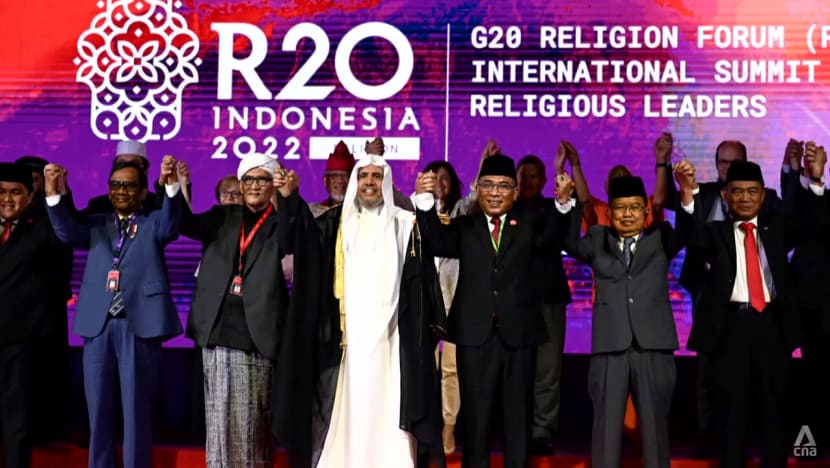
Extremist groups were banned under former president Suharto, who was in power for 32 years until 1998.
Then political reforms allowed for more freedom of expression and “opened the door for anyone to set up a political party”, said Todung Mulya Lubis, Indonesia’s former ambassador to Norway and Iceland.
And then you had so many political parties established in Indonesia, including Islamic political parties. If among them, they play identity politics, I’m not surprised at all because that’s the way to get people to vote for them.”
Some hard-line groups want a caliphate, an Islamic state ruled by a single religious and political leader.
“We’ll never reject a caliphate concept. Rejecting the caliphate is apostasy,” declared Novel Bamukmin, a senior member of the Islamic Brotherhood Front, a group viewed by some as the reincarnation of the Islamic Defenders Front.
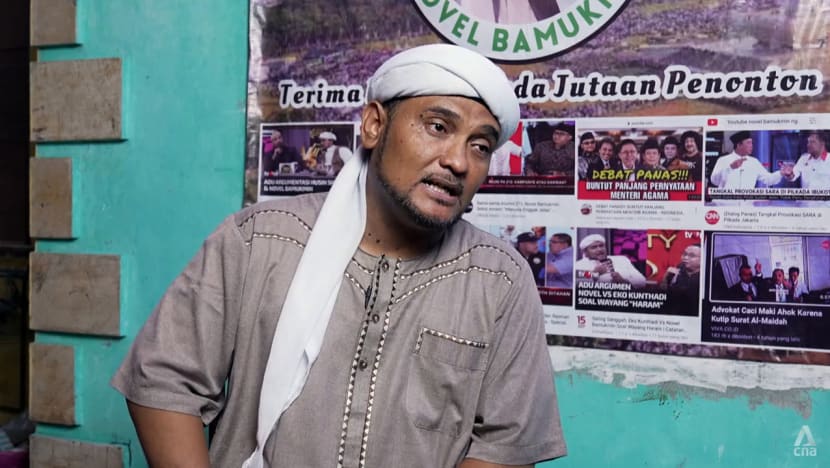
The latter, which Indonesia banned in 2020, was known for raiding bars and brothels during the fasting month as well as for targeting non-practising Muslims and religious minorities.
Both organisations bear the acronym FPI, but Novel maintained that the Islamic Brotherhood Front was “not a reincarnation” and has a different “internal law”.
Organisations that propagate moderate Islam, meanwhile, “can never voice the truth”, he asserted. “They have no self-worth, and they’ve destroyed religious values, Islamic values.”
Moderate voices such as Dewi, however, pointed to “unity in diversity” as the essence of Indonesia. “If the majority oppresses the minority, then the social-political contract … would be torn apart. Indonesia could be engulfed in endless conflicts,” she said.
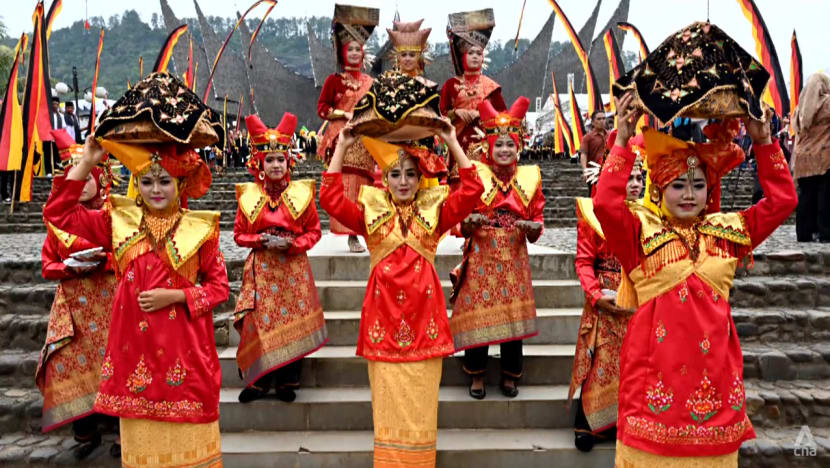
Its national ideology, Pancasila, comprises five principles: Belief in one God, civilised humanity, national unity, democracy and social justice.
The idea of a caliphate, on the other hand, is “completely unrealistic” and will “trigger instability”, said Yahya Cholil Staquf, chairman of Nahdlatul Ulama, which was founded in 1926.
“In our society, groups with the intention to create problems do persist. They wish to hijack or take advantage of the political momentum as an opportunity to build and carry out their strategy, which is basically to create chaos.”
‘COMPLICATED’ FREEDOM OF WORSHIP
On the ground, lack of tolerance could manifest in various ways, such as the disturbance of other people’s freedom of worship.
WATCH: Is Indonesia still a bastion of moderate Islam and diversity? (47:09)
According to human rights advocacy group Setara Institute, 50 houses of worship, mostly churches, were the target of disturbances last year, up from 16 in 2017. Disturbances include destruction of houses of worship and opposition to their construction.
Years earlier, in 2006, a decree issued by the Religious Affairs Ministry and Home Ministry stipulated that a house of worship could be constructed only with the approval of at least 90 worshippers and 60 others living in the area.
This rule, in the opinion of Ahmad Gaus — a researcher at the Centre for the Study of Religion and Culture at the State Islamic University Syarif Hidayatullah Jakarta — was “made to complicate the construction of churches”.
There could be hurdles to overcome in existing places of worship as well.
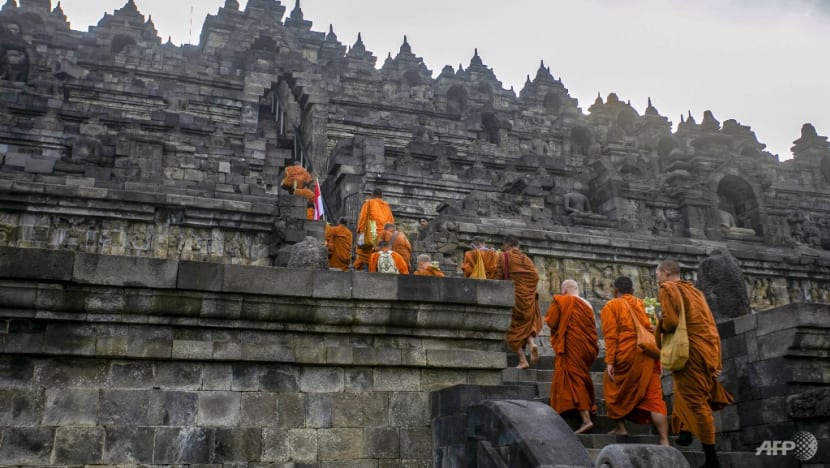
When the Indonesian Buddhist Intellectual Association wants to hold an activity in Borobudur, a Buddhist temple dating back centuries, it must “get permission and deal with a very complicated mechanism”, cited Eric Fernando, the association’s executive director. There is also a “very expensive” rental fee.
While Jokowi has made it clear that “all religious people in Indonesia have the right to conduct worship according to their respective beliefs”, said Ahmad, “whether the state apparatus below him will carry it out or not is another thing”.
With the reforms and democratisation of Indonesia, local governments have had some autonomy, and some states, for example, have implemented the wearing of headscarves in schools, in defiance of the federal government.
“Is conservatism growing? The answer is yes, … but it happens sporadically,” said Jimmy Sormin, executive secretary of the Communion of Churches in Indonesia.
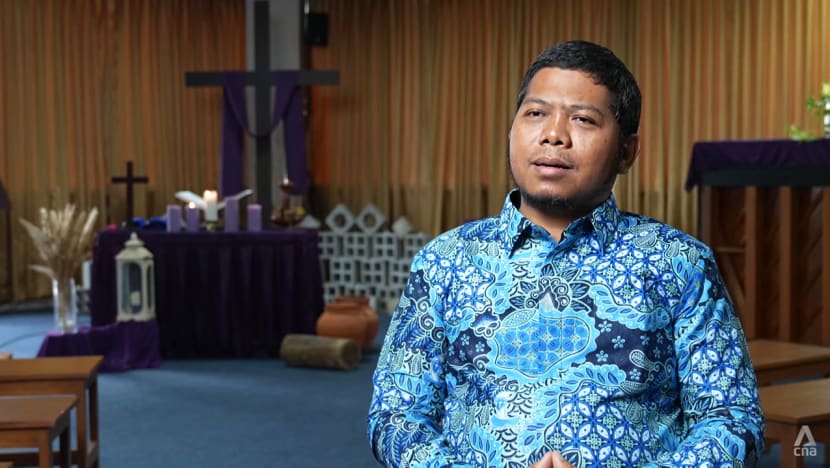
He added, however, that conservatism can happen “not only in Islam” but also in Christianity and other religious groups.
For the most part, practising a minority faith in Indonesia — where non-Muslims constitute about 13 per cent of the population — is an exercise in discretion.
This “unwritten rule of embracing Buddhism in Indonesia”, Fernando cited, is exemplified in a disclaimer the association usually includes in books it prints. The disclaimer states that “they’re written for our own circle”, he said.
“This means this book is published not to try to persuade other people to embrace our religion.”
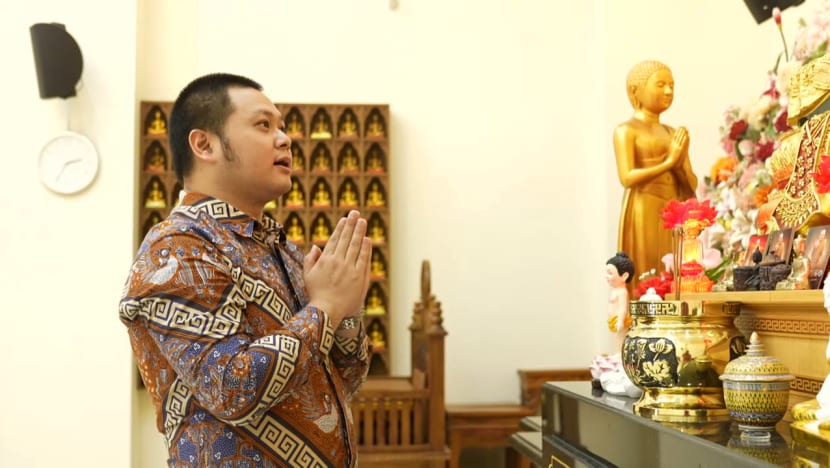
PINNING HOPES ON SILENT MAJORITY
Amid the fears of identity politics, analysts believe it is Indonesia’s silent, moderate majority that will be a bulwark against extremist tendencies — perhaps with people like mosque caretaker Maswi.
He looks after Jakarta’s Luar Batang mosque. It houses the tomb of Al-Habib Husein Abubakar Al-Aydrus, who worshippers believe was a descendant of Prophet Muhammad who came from Yemen to spread Islam in Indonesia.
The tomb attracts four times as many pilgrims during the fasting month. But the pilgrimage is controversial as some Muslims see it as tomb worship, forbidden in the Quran.
Maswi takes such views in his stride and said those who do not believe in it need not visit.
In his neighbourhood, residents include Chinese and other non-Muslims, and they all get along. “We respect each other, and we don’t make a fuss about each other’s religions,” he said. “That’s why … until now, we haven’t seen conflict.”
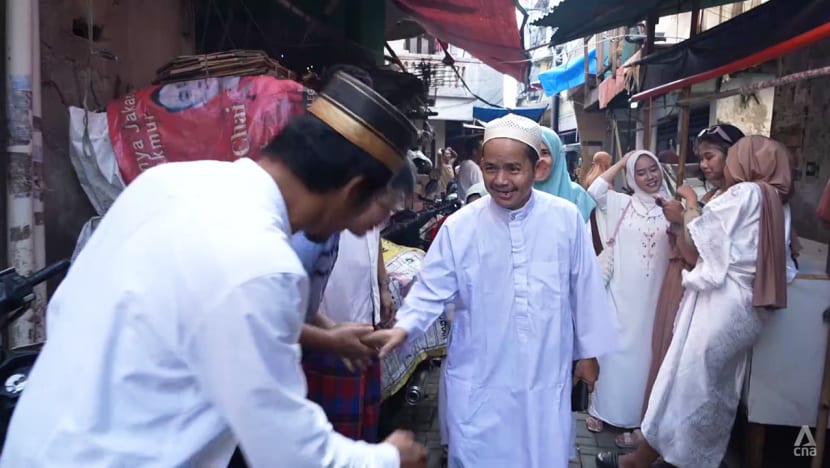
Indonesians should be “smart enough not to take politics to heart” when they witness identity politics and bruising political contests, said Dewi.
At Jakarta’s 2017 gubernatorial election, it was “as if Indonesia was going to break up”. The 2019 presidential election was similar, but after that, the political elites “got back together”, and defeated candidate Prabowo Subianto joined Jokowi’s Cabinet, noted Dewi.
“I hope that the political elites won’t make cheap use of identity, which could be very damaging, very polarising, just to score points.”
Watch this episode of Insight here. The programme airs on Thursdays at 9pm.
Read this story in Bahasa Indonesia here.


















